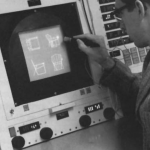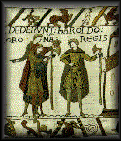2013
Andrew Reynolds reviews Stephen Schryer’s Fantasies of the New Class: Ideologies of Professionalism in Post-World War II American Fiction, which argues for an instrumental form of intellectual labor in the service of broader social goals. Comparing novelists and sociologists representative of this new class, Schryer detects a self-defeating strategy in their rejection of collective instrumentalism in favor of individual dissemination of cultural education. Where Schryer closes by criticizing recent conceptions of an alternative economy of non-instrumental intellectual work within the university as a fantasy, Reynolds observes a “performative contradiction” at work in Schryer’s text and suggests that it is a good thing.
2011
"What would a history of postwar U.S. literature look like that did not take society as its major organizing principle?" Daniel Worden reviews Michael Clune's American Literature and the Free Market, 1945-2000, which traces the emergence of the "economic fiction," in which the market is neither a mystified form of social relations nor an expression of individual values, but a virtual economy that structures experience.
2010
David Haeselin reviews Ted Striphas' The Late Age of Print, which explores the crucial role of book publishing in today's society of controlled consumption. The oft-repeated death knell for reading, Striphas argues, is the equivalent to a Fox News jeremiad on the death of American morality: it's wholly ideological and selective.
2009
Taking seriously author Gary Hall's ground-up rethinking of the university, David Parry raises an issue not addressed in Digitize This Book, namely - what if Hall's own field of Cultural Studies has no future as a discipline in the university's digital future?
2008
Countering Andrew Gallix's suggestion in The Guardian that electronic literature is finished, author Dene Grigar indicates that it may not be e-lit, but rather the institution of humanities teaching, that is in a state of crisis - and e-lit in fact could be well placed one to revive the teaching of literature in schools and universities.
2003
Juggling economies and unknotting threads, Victor Vitanza pulls back to drop the curtain, theoretically, on The Politics of Information.
The Politics of Information: fifth and final installment under the Technocapitalist thread.
Chris Carter and Greg Ulmer dialogue through e-mails on the mission of the FRE.
Katie King on the challenges and rewards, in her own life and the lives of her students, that emerge when writing about personal encounters with technology.
Whether they fret over Ziggy Stardust or the condition of posthumanity, fans and scholars share, argues Harvey Molloy, a few habits of mind.
A survey of humanities research websites (and how to teach with them) by Susan Schreibman.
Laura Sullivan and her students explore webwriting and content provision as activist tools.
In The Politics of Information, v.4, Bousquet, Wills, and Co bring their critique home to Higher Education.
Tim Luke takes on the business of online learning.
Marc Bousquet discusses university labor delivered in "the mode of information."
Stephanie Tripp addresses Spectres of Marx, the text featuring some of Derrida?s most detailed encounters with both historical materialism and information technology.
Junk bond swami Michael Milken jumped out of prison a few years ago and into for-profit education. Ken Saltman submits Milken's latest venture to the light of day.
How to commodify "intellectual property" when the object, a text, is made of other texts, and each reading is a re-writing? The Politics of Information, Part 3, considers the identity of event and machine.
George Landow talks with Harvey Molloy about personal projects and future Web speculations.
Urging adaptibility and breadth, Mark Poster takes issue with the niches bored by early Internet critiques.

